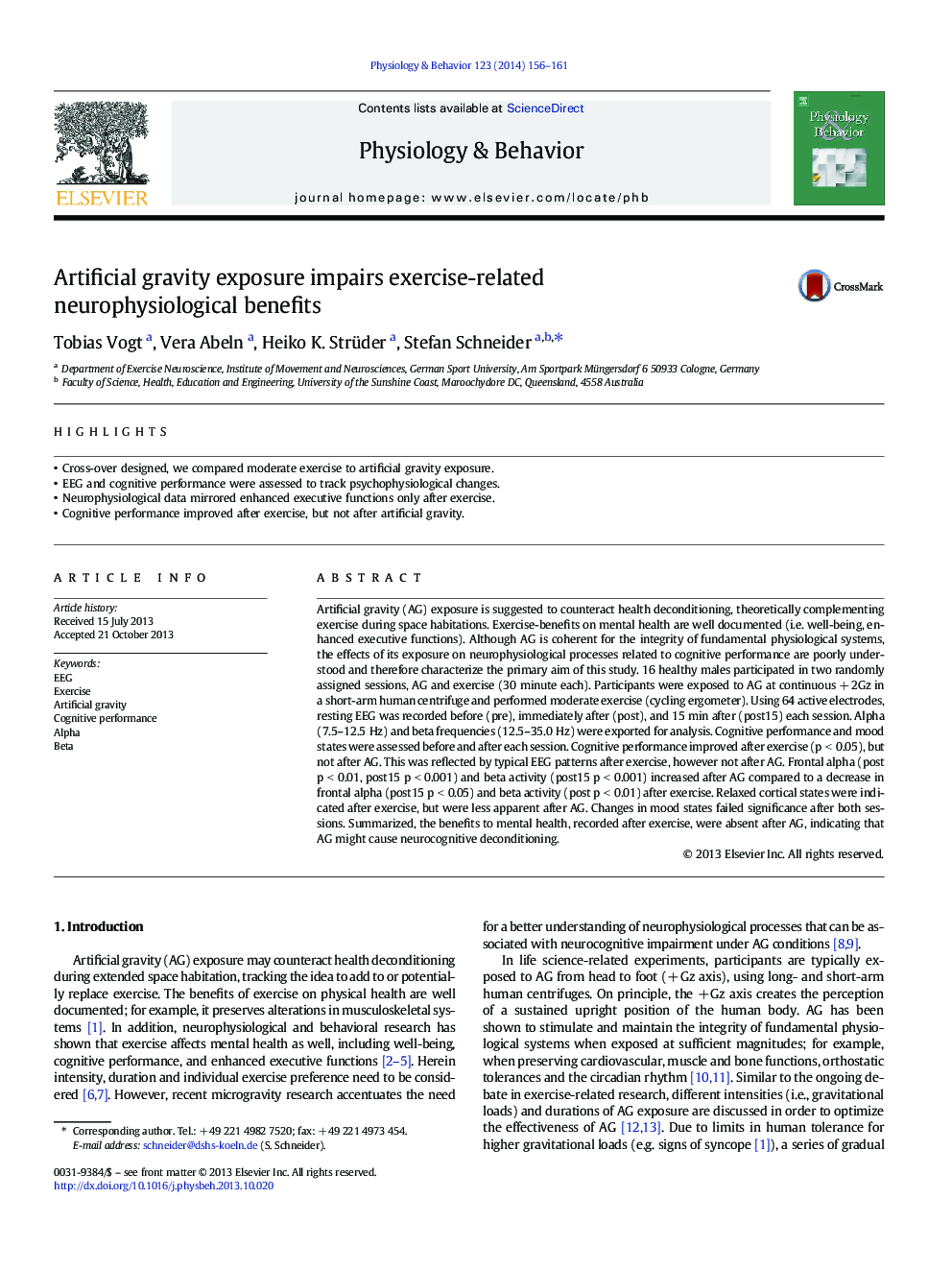| کد مقاله | کد نشریه | سال انتشار | مقاله انگلیسی | نسخه تمام متن |
|---|---|---|---|---|
| 5924570 | 1571194 | 2014 | 6 صفحه PDF | دانلود رایگان |
عنوان انگلیسی مقاله ISI
Artificial gravity exposure impairs exercise-related neurophysiological benefits
ترجمه فارسی عنوان
قرار گرفتن در معرض جاذبه مصنوعی، مزایای عصبی فیزیولوژیکی مربوط به ورزش را مختل می کند
دانلود مقاله + سفارش ترجمه
دانلود مقاله ISI انگلیسی
رایگان برای ایرانیان
کلمات کلیدی
موضوعات مرتبط
علوم زیستی و بیوفناوری
بیوشیمی، ژنتیک و زیست شناسی مولکولی
فیزیولوژی
چکیده انگلیسی
Artificial gravity (AG) exposure is suggested to counteract health deconditioning, theoretically complementing exercise during space habitations. Exercise-benefits on mental health are well documented (i.e. well-being, enhanced executive functions). Although AG is coherent for the integrity of fundamental physiological systems, the effects of its exposure on neurophysiological processes related to cognitive performance are poorly understood and therefore characterize the primary aim of this study. 16 healthy males participated in two randomly assigned sessions, AG and exercise (30 minute each). Participants were exposed to AG at continuous + 2Gz in a short-arm human centrifuge and performed moderate exercise (cycling ergometer). Using 64 active electrodes, resting EEG was recorded before (pre), immediately after (post), and 15 min after (post15) each session. Alpha (7.5-12.5 Hz) and beta frequencies (12.5-35.0 Hz) were exported for analysis. Cognitive performance and mood states were assessed before and after each session. Cognitive performance improved after exercise (p < 0.05), but not after AG. This was reflected by typical EEG patterns after exercise, however not after AG. Frontal alpha (post p < 0.01, post15 p < 0.001) and beta activity (post15 p < 0.001) increased after AG compared to a decrease in frontal alpha (post15 p < 0.05) and beta activity (post p < 0.01) after exercise. Relaxed cortical states were indicated after exercise, but were less apparent after AG. Changes in mood states failed significance after both sessions. Summarized, the benefits to mental health, recorded after exercise, were absent after AG, indicating that AG might cause neurocognitive deconditioning.
ناشر
Database: Elsevier - ScienceDirect (ساینس دایرکت)
Journal: Physiology & Behavior - Volume 123, 17 January 2014, Pages 156-161
Journal: Physiology & Behavior - Volume 123, 17 January 2014, Pages 156-161
نویسندگان
Tobias Vogt, Vera Abeln, Heiko K. Strüder, Stefan Schneider,
